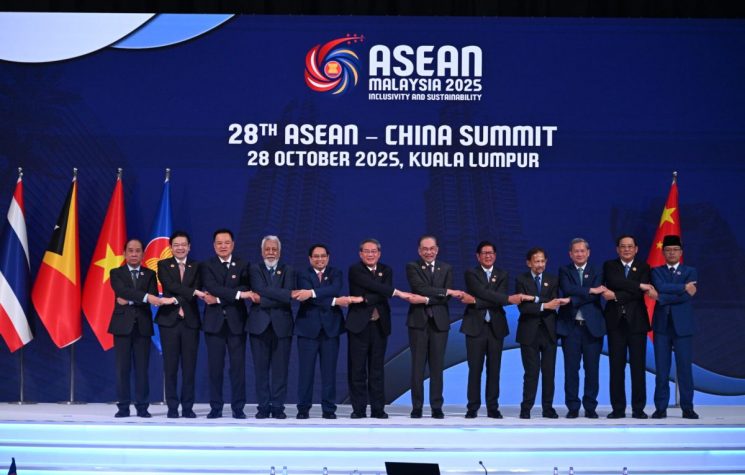Identity shaped by adherence to institutional principles is rational and practical rather than emotional.
❗️Join us on Telegram![]() , Twitter
, Twitter![]() , and VK
, and VK![]() .
.
Contact us: info@strategic-culture.su
Some time ago The American Conservative, house organ of the American Ideas Institute, published an interesting text, “America requires a real foreign policy debate” by author Doug Bandow. It is well worth reading. It purports to be a critique of U. S. foreign policy. A critique of sorts it is, in the broad sense that its fundamental, and indisputable, thesis is that U.S. foreign policy does not serve America’s interests.
The argument developed by Bandow is, however, a classic example of basically sound conclusions supported by weak and timidly formulated evidence.
In the style of traditional American conservative thought, Bandow (who is also a senior fellow at a conservative think tank, the Cato Institute) rejects “unbridled hubris” and delusions of unipolar grandeur. He advocates a reconfiguration of relations with the outside world that whilst falling shy of isolationism would nevertheless promote “trade, investment, immigration, and travel,” all of which would in his view “offer enormous benefits to Americans.” It would make the U.S. a less threatening and more equal partner to other countries whilst also turning it into “a commercial and cultural giant”. There is a good chance that Col. Macgregor and Andrei Martyanov would mostly agree with these assessments.
They would find equally acceptable the author’s assertion, and that is the key point, that the present-day U.S. foreign policy establishment “evince little concern for those to whom they are supposedly responsible, instead designing policies that serve foreign interests and the latter’s domestic allies.” The identity of some of those “foreign interests” is carefully side-stepped, but unconditional support for the perpetrators of the appalling humanitarian disaster in Gaza is a sufficient clue who they might be.
So to whom, pray, should U.S. foreign policy planners be responsible, according to The American Conservative? Well, to the American people presumably. A sound foreign policy therefore ought to be designed not based on a delusionary “mandate of heaven to remake the entire world, regardless of the cost to Americans and other peoples”, but to “meet existential threats and protect [America’s] vital interests, not remake the globe in the image desired by the arrogant elite filling America’s imperial city”.
This is spot on, as far as it goes. But something is glaringly missing in this audacious critique. A few additional points might have been included to elevate it from the level of a high school essay to a more serious analytical plane.
The fundamental unasked and unexamined question is how such wide discrepancies between the national interest and the foreign (and we may add domestic) policies pursued by elitist groups entrenched in the government can be reconciled with the conduct of a functioning democracy?
The short answer is that it cannot be, unpleasant as that might appear to the editors of The American Conservative and the think tank that sponsors them, who unquestionably are sincere American patriots and persons of the highest integrity. We would venture the following explanation for the existing state of affairs.
In the United States “national interest” is a concept quite different from the meaning that notion conveys in most other parts of the world. America is a melting pot where the unifying principle has not been a commitment to shared moral and cultural values but rather a shared commitment to institutions which the critical mass of a heterogeneous population has traditionally seen as the guarantor of its collective benefits. What gives Americans the feeling of a distinct group with definable common interests is their commitment to and participation in the system of government that is based on those institutions.
Identity shaped by adherence to institutional principles is rational and practical rather than emotional. It is very different from the kinds of bonds that have shaped and held together historically much older and resilient communities throughout the world. It is not shaped or influenced by absolutes, being imbued with a high degree of pragmatism. The essence of that pragmatism is embodied in Richard Nixon’s rationale for his rapprochement with China. The interview is appropriately entitled: “What should the President’s foreign policy priority be?” Asked whether the “pivot” to China contradicted his conservative convictions, his answer was a flat “no.” Of course Nixon loathed China’s form of government, yet what in his view were sound geopolitical considerations dictated what needed to be done because, as he frankly put it, “the American system has to survive, it must survive” [see 2:23 to 2:37] at any cost. Nixon’s appeal was not to the preservation of America as a moral community under foreign ideological threat, but to the infinitely more flexible criterion of preserving “the system,” in which Nixon himself, of course, was a prominent stakeholder and a card carrying member.
Nixon’s comments encapsulate the “principles” which should govern the conduct of foreign policy from the standpoint of the political elite (or the nomenklatura, as it used to be known elsewhere). Be it noted that this elite in fact embodies “the system” because they are its active members and naturally are keenly interested in its survival.
What about the populus, the rest of society? They are indoctrinated to think of themselves as components of “the system,” but realistically their membership is passive. Their role is not to direct anything but only when required to manifest consent.
They do not have the capacity to constitute a hindrance to the elite, a fact that The American Conservative does not seem to grasp. Bombarded incessantly by the orchestrated media, deficient in minimal education necessary to make informed and competent judgments on any public policy issue, foreign or domestic, distracted by nonsense such as politically correct use of pronouns, in the political labyrinth an average member of this majority cohort is effectively helpless and lost. In addition to that, deliberately provoked social divisions have pigeonholed most members of this large group in one of the many artificially created subgroups, ethnic, racial, gender, and so forth. They have scant sense of common or “national interest” as that is generally understood, and even less ability to comprehend what that concept refers to.
What foreign policy or any other sort of debate could these “deplorables” (Hillary Clinton’s term) realistically be expected to carry on?
Therein lies the naiveté of The American Conservative’s analysis. The editors are highly intelligent and concerned American patriots. They are capable of identifying problems. But their world-view is too romantic and locked into America’s admirable past to allow them to formulate practical and effective solutions.
































